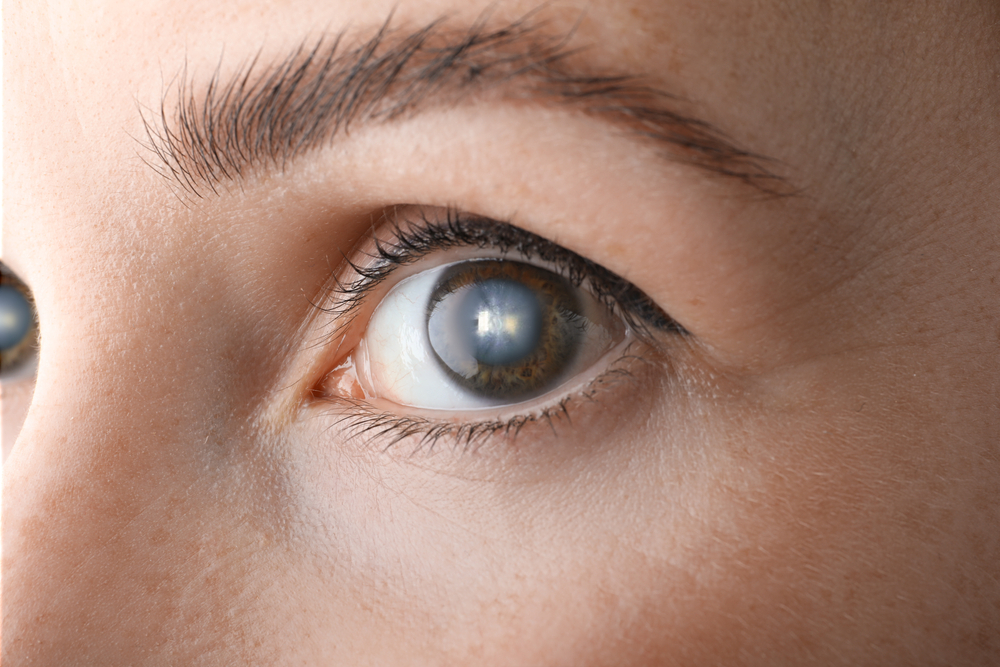Cataracts are one of the leading causes of vision loss worldwide, and they are especially prevalent in older adults. In fact, by age 80, more than half of all Americans either have a cataract or have had cataract surgery. While cataracts are often associated with aging, there are other factors that can contribute to their development, which we’ll explore in the next section.
Common Causes of Cataracts
In addition to the natural aging process, there are several other factors that can increase your risk of developing cataracts:
- Ultraviolet (UV) light exposure: Prolonged exposure to UV radiation from the sun can damage the proteins in the lens of your eye, leading to cataract formation.
- Diabetes: High blood sugar levels associated with diabetes can cause the lens to swell and change shape, leading to the development of cataracts.
- Smoking: Smoking has been linked to an increased risk of cataracts, likely due to the oxidative stress and inflammation it causes in the body.
- Steroid medication use: Long-term use of corticosteroid medications, such as those used to treat asthma or arthritis, can contribute to cataract development.
- Eye injuries or inflammation: Trauma to the eye or conditions like uveitis (inflammation of the middle layer of the eye) can also lead to cataract formation.
- Genetic factors: In some cases, cataracts can be inherited or associated with certain genetic disorders.
Can Cataracts be Prevented?
While you can’t completely prevent the natural aging process that leads to cataract development, there are steps you can take to reduce your risk and potentially delay the onset of cataracts.
- Protect your eyes from UV exposure: Wear sunglasses or hats with wide brims when you’re outdoors to shield your eyes from the sun’s harmful UV rays. Look for sunglasses that block at least 99% of UVA and UVB radiation.
- Manage your diabetes: If you have diabetes, work closely with your healthcare provider to keep your blood sugar levels under control. Maintaining healthy blood sugar levels can help prevent or slow the progression of cataracts.
- Quit smoking: Quitting smoking can significantly reduce your risk of developing cataracts. If you smoke, talk to your doctor about effective smoking cessation strategies.
- Limit steroid use: If you take steroid medications, work with your healthcare provider to find the lowest effective dose and explore alternative treatment options that don’t involve long-term steroid use.
- Eat a healthy, balanced diet: A diet rich in antioxidants, such as vitamins C and E, lutein, and zeaxanthin, may help protect the lens of your eye and slow the development of cataracts. Incorporate plenty of fruits, vegetables, and whole grains into your meals.
- Stay physically active: Regular exercise can help maintain overall eye health and may reduce your risk of developing cataracts. Aim for at least 30 minutes of moderate physical activity most days of the week.
The Importance of Regular Eye Exams in Detecting Cataracts
Regular comprehensive eye exams are essential for detecting cataracts early and monitoring their progression. During these exams, your eye doctor will thoroughly examine the lens of your eye and assess your vision to determine if a cataract is present. Early detection allows for timely treatment and management, which can help preserve your vision and prevent the cataract from worsening.
Even if you don’t notice any changes in your vision, it’s recommended that you schedule an eye exam at least once every one to two years, or as recommended by your optometrist. This is especially important as you age, as the risk of developing cataracts increases with each passing year.
Book Your Next Eye Exam with Vùe Eye Boutique Today
While you can’t completely prevent the natural aging process that leads to cataract development, there are several steps you can take to reduce your risk and potentially delay the onset of this common eye condition. By protecting your eyes from UV exposure, managing underlying health conditions, maintaining a healthy lifestyle, and scheduling regular eye exams, you can take an active role in preserving your vision and enjoying clear, sharp sight for years to come.
If you’re concerned about your risk of developing cataracts or have noticed changes in your vision, schedule an appointment with Vùe Eye Boutique. We can provide personalized guidance and recommendations to help you take proactive steps to protect your eye health. Visit our boutique in Dearborn Heights, Michigan, or call (313) 895-7205 to book an appointment today.

